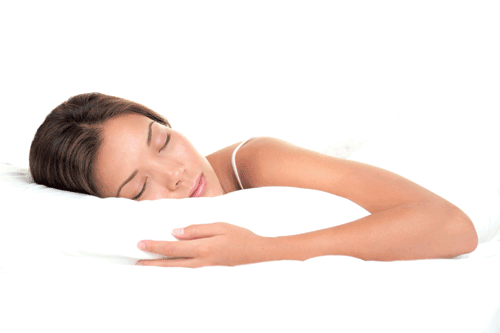see all jobs
Estée Lauder study links poor quality sleep to skin ageing
A recent study analysing the effects of sleep on skin quality has found that poor sleepers had increased signs of skin ageing and slower recovery from environmental stressors such as ultraviolet (UV) radiation.
The recent study entitled Effects of Sleep Quality on Skin Ageing and Function was commissioned by Estée Lauder and carried out by University Hospitals Case Medical Center in Cleveland, Ohio, US.
Skin functions as an important barrier from external stressors such as environmental toxins and sun-induced DNA damage. The research team set out to determine if skin function and appearance is also impacted by sleep quality.
The study involved 60 pre-menopausal women between the ages of 30 and 49, with half of participants falling into the poor quality sleep category.
Poor sleepers also had worse assessment of their own skin and facial appearance.
The researchers found significant differences between good and poor quality sleepers. Using the SCINEXA skin ageing scoring system, poor quality sleepers showed increased signs of intrinsic skin ageing including fine lines, uneven pigmentation and slackening of skin and reduced elasticity.
In this system, a higher score means a more aged appearance. The average score in the good quality sleepers was 2.2 versus 4.4 in poor quality sleepers.
The researchers found that good quality sleepers recovered more efficiently from stressors to the skin. Recovery from sunburn was more sluggish in poor quality sleepers, with erythema (redness) remaining higher over 72 hours, indicating that inflammation is less efficiently resolved.
Additionally, poor quality sleepers were significantly more likely to have a higher Body Mass Index (BMI). For example, 23 per cent of good quality sleepers were obese compared to 44 per cent of poor quality sleepers. Self perception of attractiveness was significantly better in good quality sleepers versus poor quality sleepers.
Dr. Baron, Director of the Skin Study Center at UH Case Medical Center and associate professor of Dermatology at Case Western Reserve University School of Medicine said: “Our study is the first to conclusively demonstrate that inadequate sleep is correlated with reduced skin health and accelerates skin ageing.
“Sleep deprived women show signs of premature skin ageing and a decrease in their skin’s ability to recover after sun exposure. While chronic sleep deprivation has been linked to medical problems such as obesity, diabetes, cancer and immune deficiency, its effects on skin function have previously been unknown.”
More News
- News by sector (all)
- All news
- Fitness
- Personal trainer
- Sport
- Spa
- Swimming
- Hospitality
- Entertainment & Gaming
- Commercial Leisure
- Property
- Architecture
- Design
- Tourism
- Travel
- Attractions
- Theme & Water Parks
- Arts & Culture
- Heritage & Museums
- Parks & Countryside
- Sales & Marketing
- Public Sector
- Training
- People
- Executive
- Apprenticeships
- Suppliers
















































